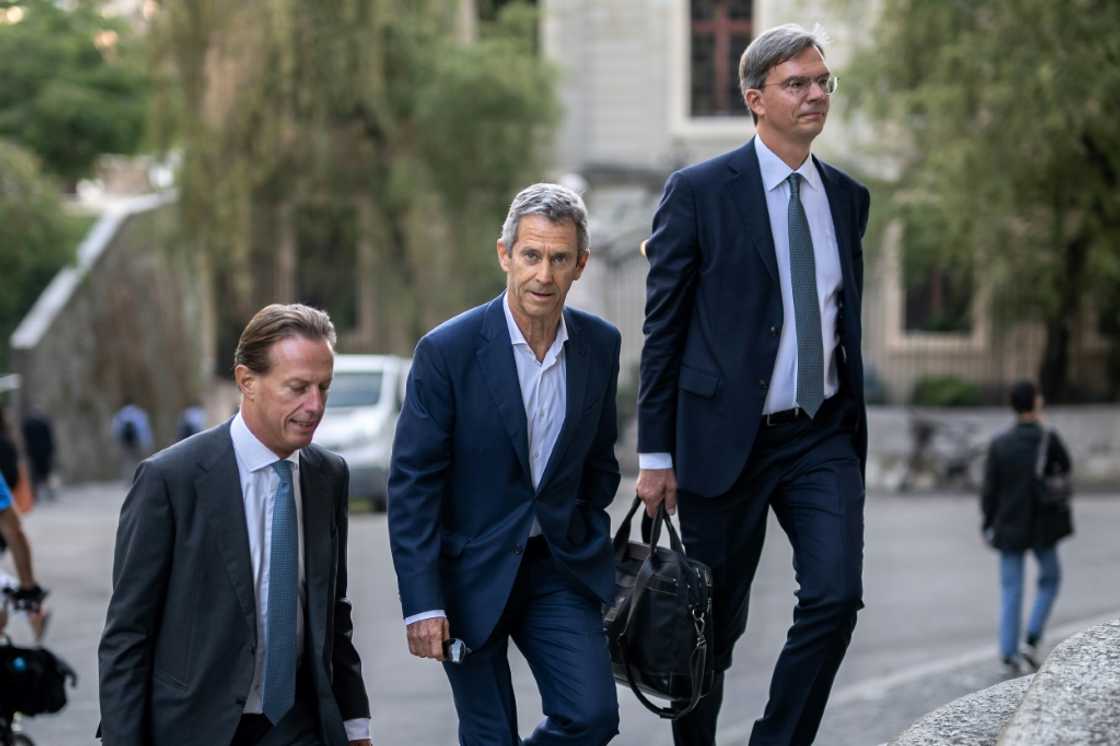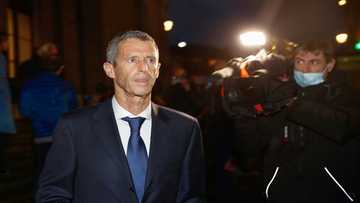Diamond magnate appeals Swiss bribery verdict

Source: AFP
New feature: Check out news exactly for YOU ➡️ find “Recommended for you” block and enjoy!
French-Israeli diamond magnate Beny Steinmetz was back in court in Switzerland on Monday seeking to clear his name by appealing against his conviction in one of the mining sector's biggest-ever corruption cases.
The 66-year-old businessman was found guilty in January 2021 of setting up a complex financial web to pay bribes to ensure his company could obtain permits in Guinea's southeastern Simandou region, which is estimated to contain the world's biggest untapped deposits of iron ore.
He was sentenced by a Geneva court in 2021 to five years in prison and also ordered to pay 50 million Swiss francs ($52 million) in compensation.
Wearing a dark blue suit and flanked by a new defence team, Steinmetz arrived at the courthouse as a free man.
He has not begun serving his sentence, since he was issued a legal free-passage guarantee to attend the first trial.
He has been issued another for his appeal, which is set to last until September 7 with the verdict due at a later date.
PAY ATTENTION: Enjoy reading our stories? Join YEN.com.gh's Telegram channel for more!
Steinmetz, who maintained his innocence throughout the original trial, changed his lawyers and beefed up his communications team for the appeal.
'Bought'?
His new lead lawyer Daniel Kinzer presented an impassioned opening statement, detailing a long line of alleged missteps, errors and misunderstandings in the trial, including accusing the prosecution of relying on coerced and even "bought" testimonies to build its case.
"I am confident the appeals court can be convinced," he told AFP before the hearings. "We expect that the tribunal recognises that Beny Steinmetz did not bribe anyone."
During the original trial, Swiss prosecutors convinced the court that Steinmetz and two partners had bribed a wife of the then Guinean president Lansana Conte and others in order to win lucrative mining rights in Simandou.
The prosecutors said Steinmetz obtained the rights shortly before Conte died in 2008 after about $10 million was paid in bribes over a number of years.
Conte's military dictatorship ordered global mining giant Rio Tinto to relinquish two concessions that were subsequently obtained by Beny Steinmetz Group Resources (BSGR) against an investment of $160 million.
Just 18 months later, BSGR sold 51 percent of its stake in the concession to Brazilian mining giant Vale for $2.5 billion.
But in 2013, Guinea's first democratically-elected president Alpha Conde launched a review of permits allotted under Conte and stripped the VBG consortium formed by BSGR and Vale of its permit.
The defence insists there was nothing inappropriate about how BSGR obtained the permits, maintaining that Rio Tinto lost half the concessions for failing to develop them.
They were then "awarded to BSGR on the basis of a solid and convincing business case, with no need to bribe a public official," Kinzer told AFP.
'Pact of corruption'
To secure the initial deal, prosecutors claimed Steinmetz and representatives in Guinea entered a "pact of corruption" with Conte and his fourth wife Mamadie Toure.
Toure, who has admitted to having received payments, has protected status in the United States as a state witness.
Kinzer told the court that much of the prosecutor's case had relied on her testimony, despite no insight into the "opaque" US deal, and asked that her testimony be deemed inadmissible.
His co-counsel Christian Luscher meanwhile highlighted concerns around the handling of the case by Claudio Mascotto, the prosecutor initially in charge of the investigation, suggesting he had struck a deal with another witness in the case, and asking that he be questioned in court.
He also pointed out that Mascotto had once shared a law practice with the court president, Catherine Gavin, warning of "a problem of appearances".
Lead prosecutor Yves Bertossa responded angrily to such arguments, accusing the defence of attacking anyone involved in the case.
"They will stop at nothing to try to find a procedural flaw," he told the court, insisting the case rested on a massive amount of evidence beyond Toure's testimony, slamming allegations of purchased testimony as laughable.
"The only ones who tried to buy Mamadie Toure," he insisted, "were Beny Steinmetz and Frederic Cilins," one of two alleged co-conspirators who are also appealing against previous convictions.
New feature: Check out news exactly for YOU ➡️ find "Recommended for you" block and enjoy!
Source: AFP




